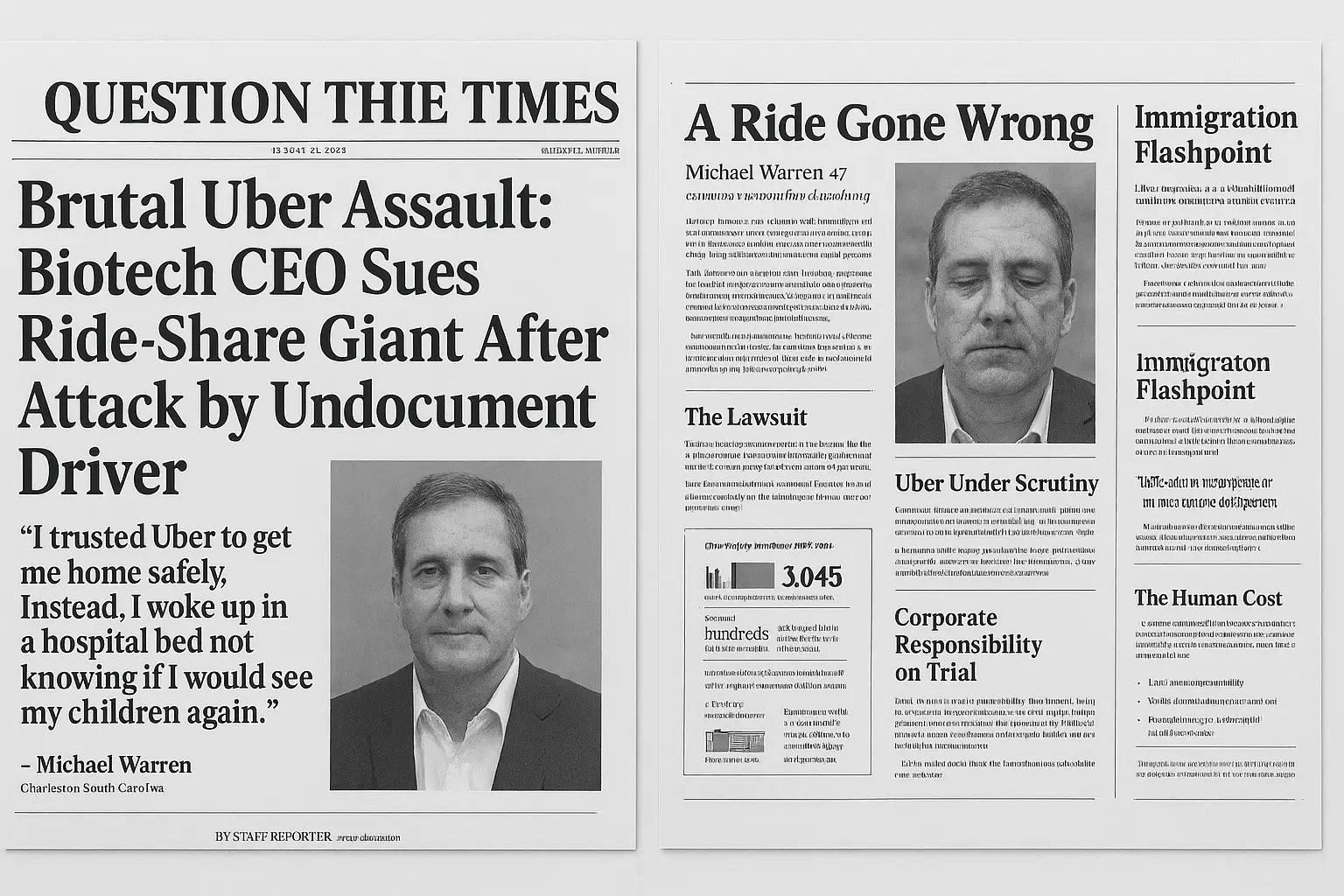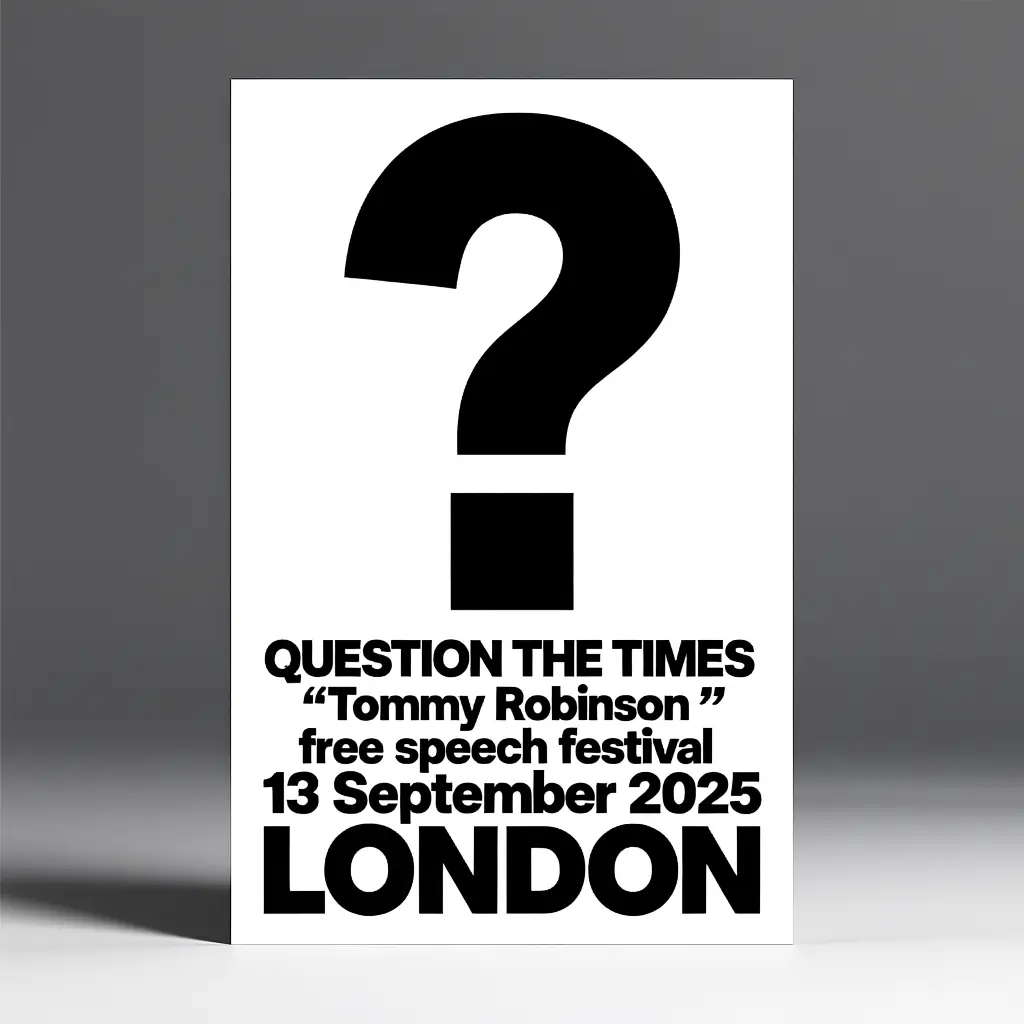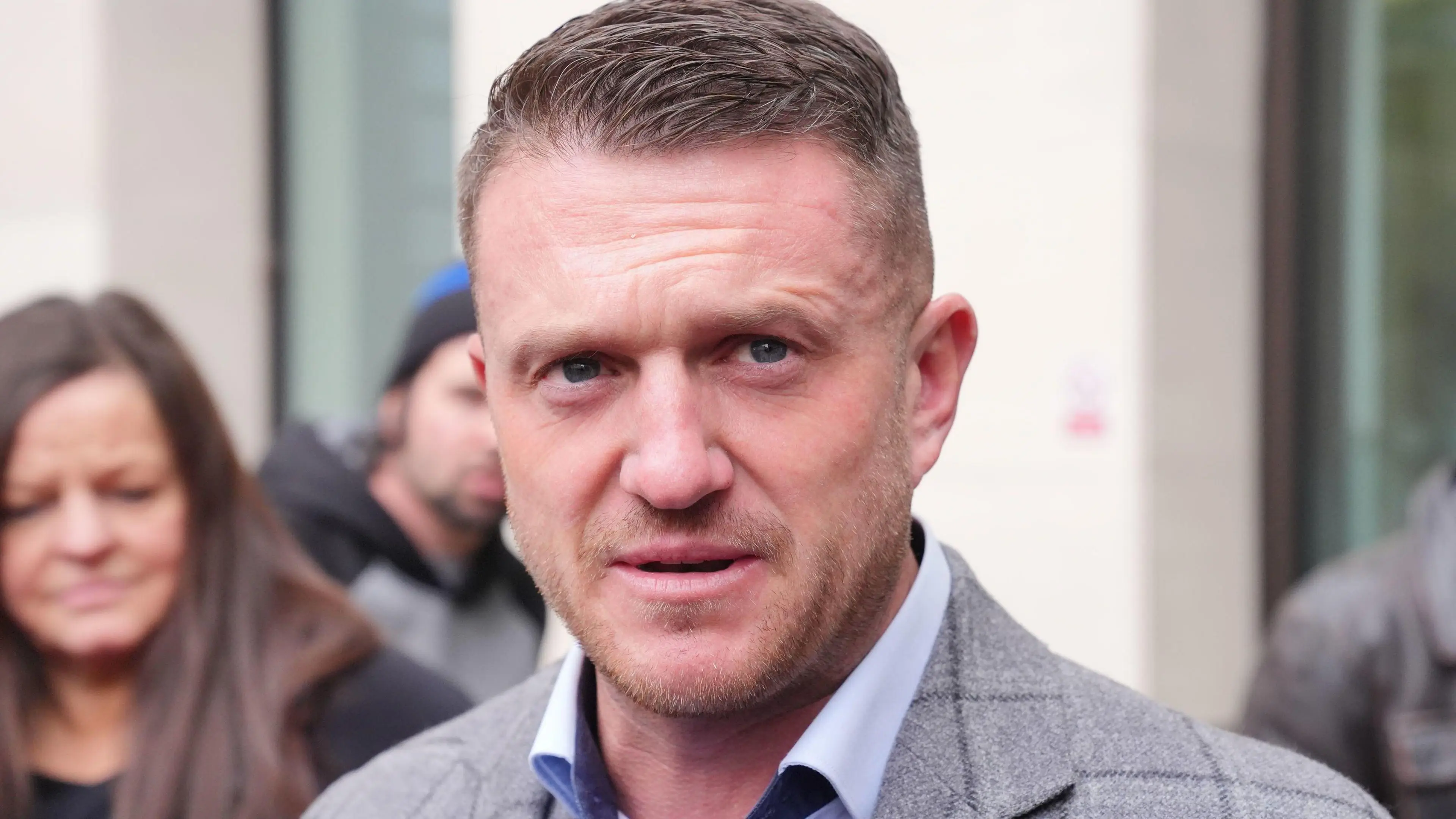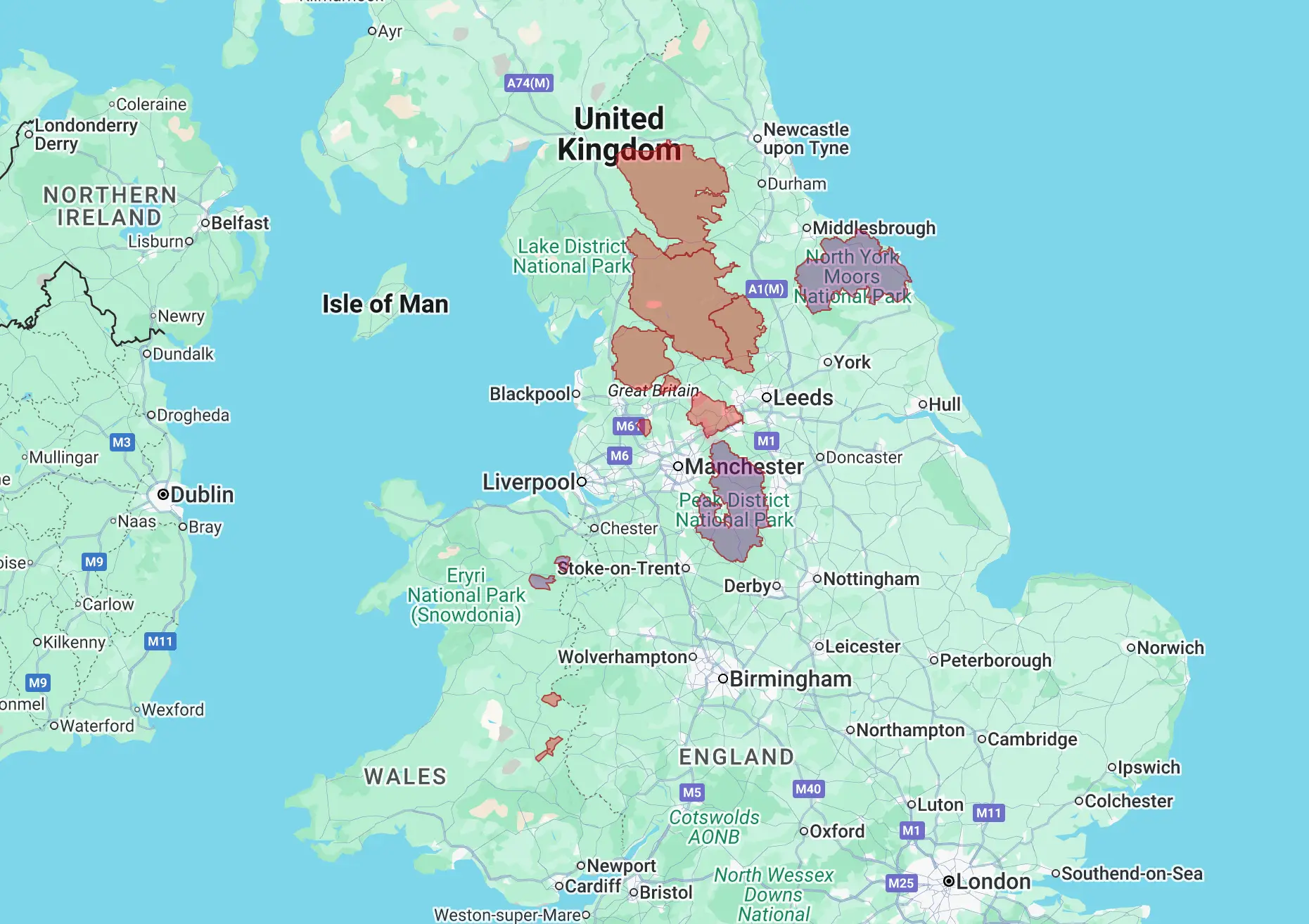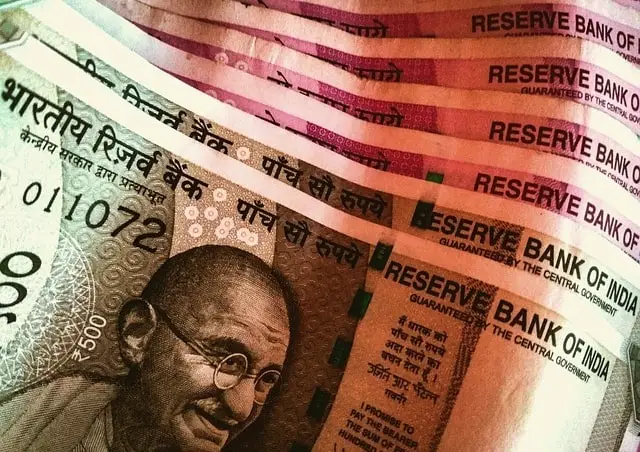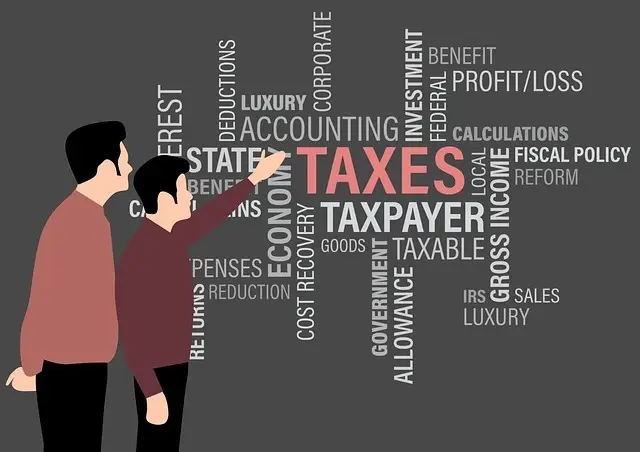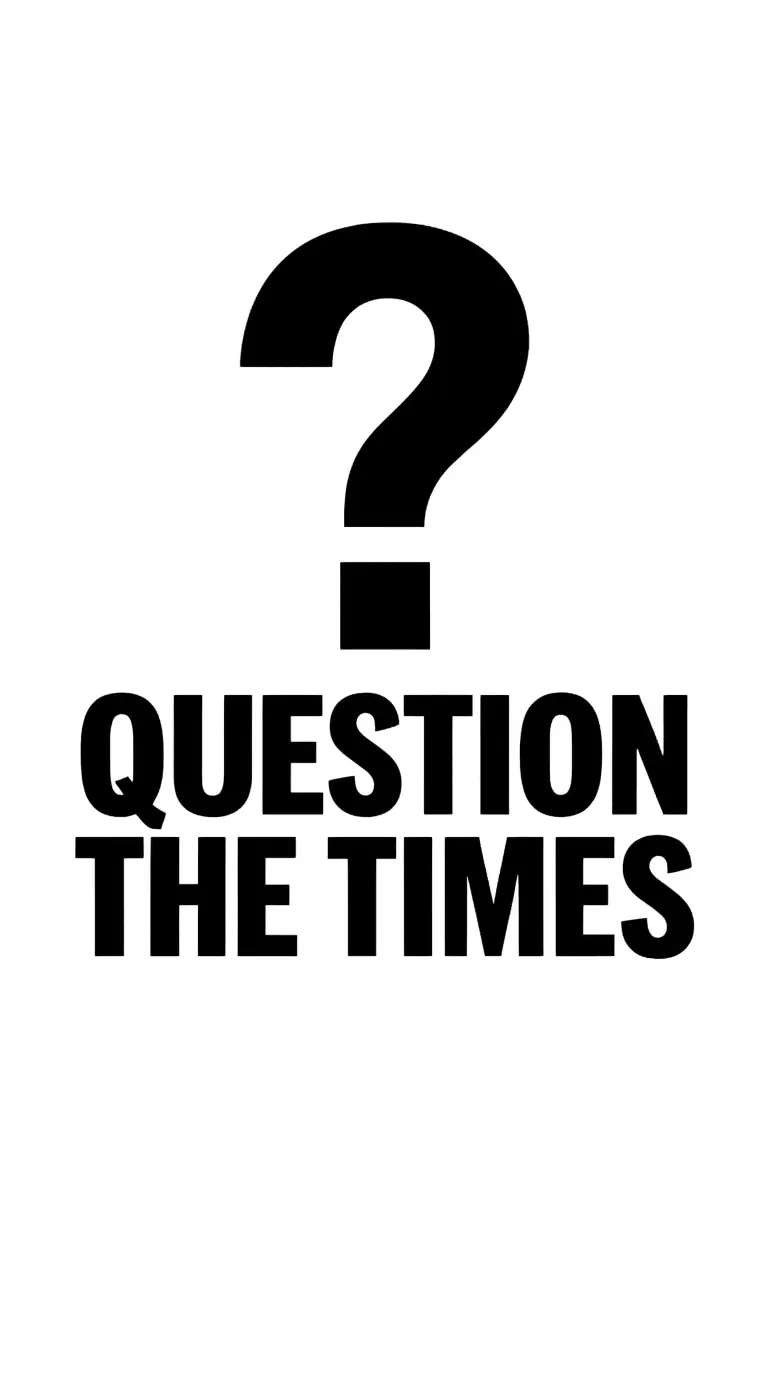It's important to approach discussions about immigration with accuracy and fairness. The United Kingdom, like many countries, faces challenges related to immigration control, including individuals who arrive without proper documentation or overstay their visas. These situations can put pressure on public services and fuel public debate around border enforcement, legal pathways to residency, and the effectiveness of the UK's immigration system. However, it's equally important to recognize that the vast majority of immigrants contribute positively to the economy and society. Addressing immigration issues should be grounded in facts, balanced policy-making, and respect for human rights. Having said that, isn't it about time Brits were put first when it comes too schools, hospitals, housing and employment.
FRONT PAGE
Our Once Great Capital London: Sadiq Khan Has Lost Control
This is happening on the streets of London on a daily basis. Fight breaks out, outside Regents Park mosque. It looks like a man from the mosque tries to intervene, God Bless Him. It’s Time for a new Mayor of London Ant Middleton is our man for the job. Click the link below to see X Feed of the incident.
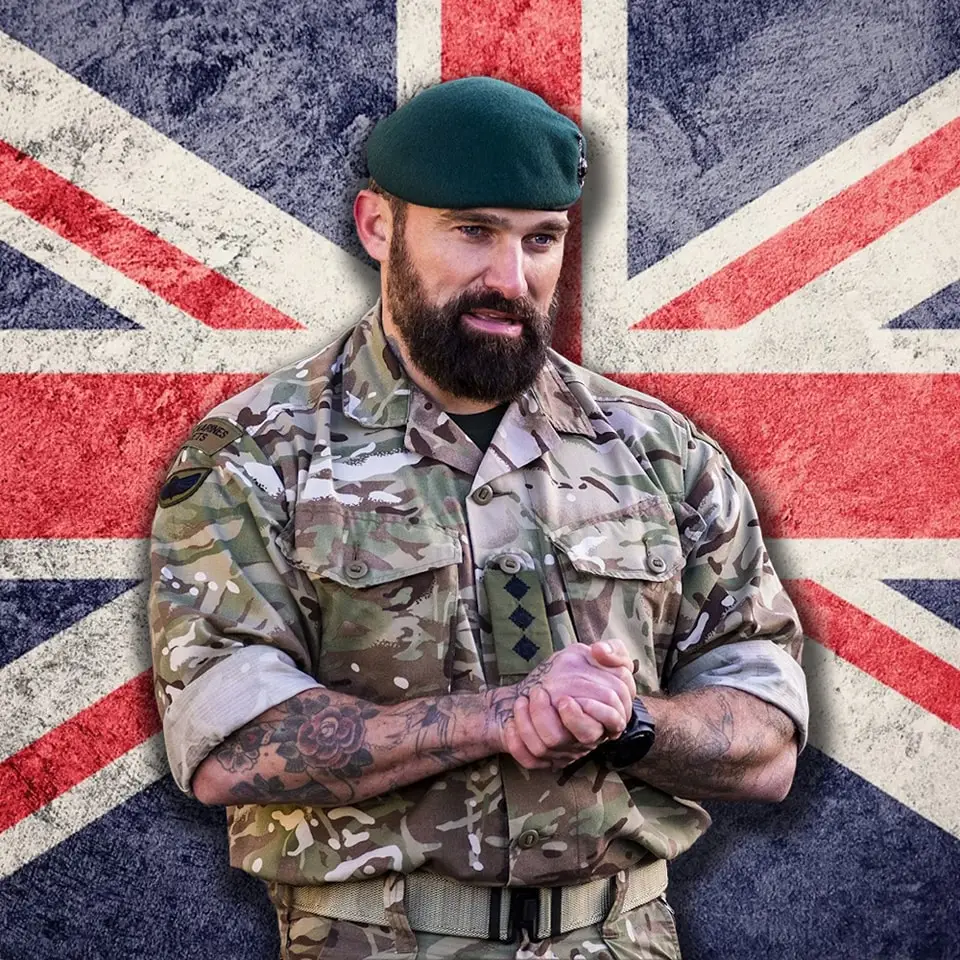
Show your support for Ant Middleton a true patriot as our future mayor of London. Click the link below to follow him on X.
Nature Under Siege: Wildlife Trust Warns of UK Biodiversity Crisis
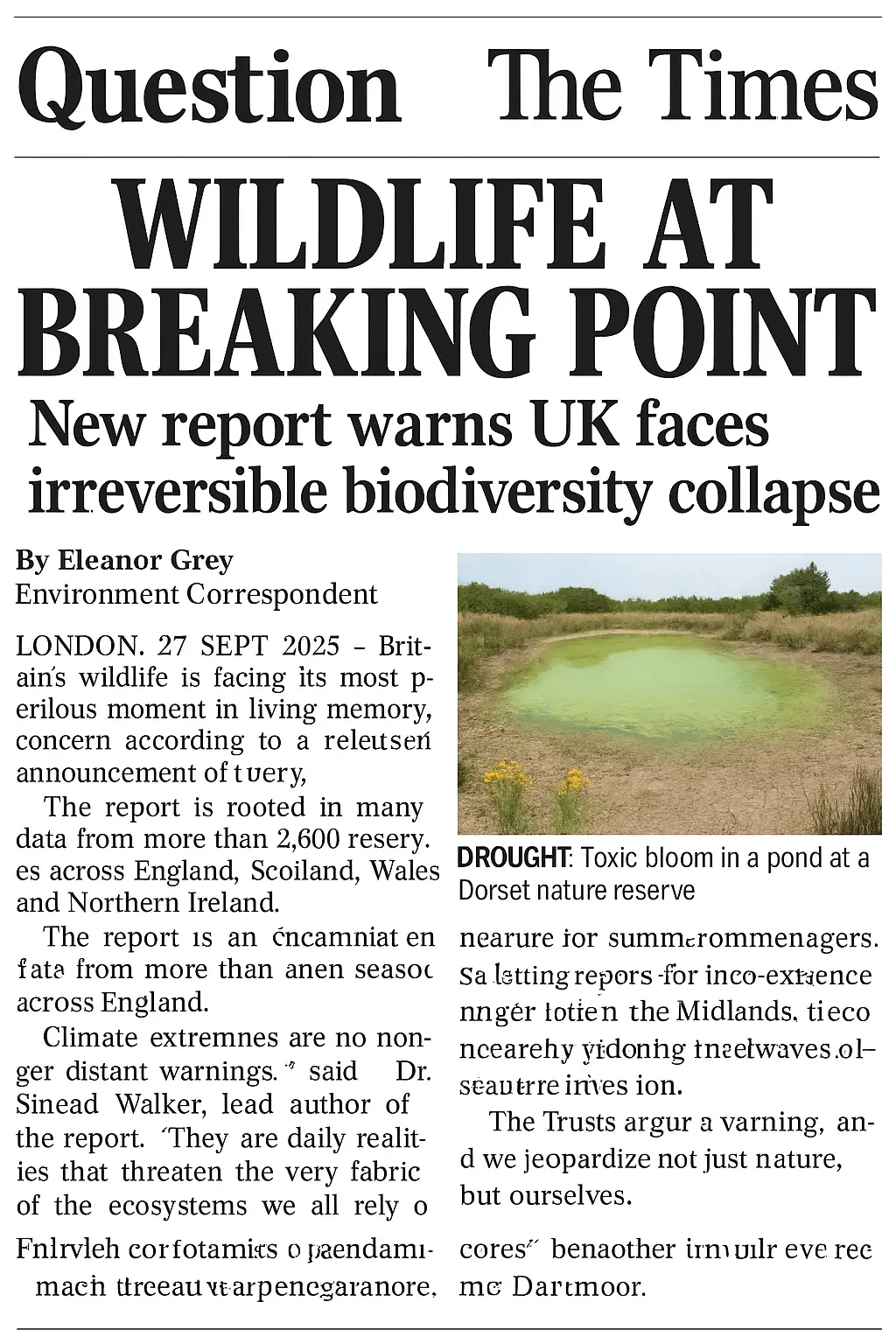
New Resilient Nature report reveals habitats stretched to breaking point by climate extremes and human pressures.
By Eleanor Grey, Environment Correspondent
LONDON, 27 September 2025 — A stark new report published today by The Wildlife Trusts lays bare the perilous condition of the United Kingdom’s wild species and habitats under accelerating climate stress. Resilient Nature, the Trusts’ adaptation assessment for 2024/25, draws on data from their 2,600 nature reserves and warns of a “nature breaking point” as extreme weather becomes ever more unpredictable. The Wildlife Trusts+1
The report identifies drought, heatwaves, wildfires, and volatile rainfall as the greatest pressures faced by ecosystems. Over the past 12 months, peat bogs, heathlands and wetlands have desiccated; ponds and streams failed to sustain amphibians and dragonflies; and reserve managers documented charred nests at sites such as Upton Heath in Dorset. The Wildlife Trusts+1
Brutal Uber Assault: South Carolina CEO Sues Ride-Share Giant After Attack by Undocumented Driver
I trusted Uber to get me home safely. Instead, I woke up in a hospital bed not knowing if I would see my children again.”
— Michael Warren, biotech CEO
A Routine Ride Turns Into a Nightmare
On a warm Charleston evening last month, Michael Warren — father, husband, and chief executive of a thriving South Carolina biotech firm — ordered an Uber for what he thought would be an uneventful ride home. Instead, he ended the night unconscious in a hospital bed, his face bloodied, his bones fractured, and his family fearing the worst.
According to witnesses and police reports, the Uber driver launched a violent attack in a Mount Pleasant parking lot after a dispute over the designated drop-off point. Warren, 47, was beaten to the ground and left bleeding heavily until bystanders intervened.
Image by: FOX NEWS
Festival of Free Speech: Tommy Robinson and the Debate on Immigration and Islam
Image by the BBC
Date: 21 August 2025 07:24am
By: Staff Reporter
London, 21 August 2025 – Stephen Yaxley-Lennon, better known as Tommy Robinson, has announced a Free Speech Festival in London set for 13 September 2025. Branded by organisers as the "UK’s largest Free Speech Festival," it aims to draw patriots united under the motto "Uniting the Kingdom", and will be hosted in central London under the banner of Urban Scoop and the Unite the Kingdom movement The SunThe TimesX (formerly Twitter)NationalWorld.
A former member of the British National Party and co-founder of the English Defence League, Robinson was released early from prison in May 2025 after serving part of an 18-month sentence for contempt of court—stemming from repeatedly breaching a High Court injunction related to defamatory allegations he had made The SunThe TimesWikipedia. Following his release, he reaffirmed his commitment to free speech, announcing plans for the forthcoming festival The Times.
What is a fascist—and why Robinson is not one (by his supporters’ account)
A fascist, in political science, typically refers to a movement or ideology characterised by authoritarianism, suppression of dissent, ultra-nationalism, and often racial supremacy or militancy. Advocates of the term argue that modern democratic freedoms are incompatible with fascist rule.
Supporters of Tommy Robinson deny that he meets these criteria, arguing that:
-
He is motivated by patriotism and concern for British identity—not the suppression of freedoms.
-
He maintains personal relationships across racial and religious lines, including friendships with individuals who are Black, Indian, Pakistani, and from various faiths.
-
Though public statements reflect opposition to Islam (as an ideology) and to illegal immigration, Robinson’s defenders insist he is not Islamophobic (i.e., hating people because they are Muslim) nor anti-Semitic, nor anti-Muslim—emphasising that he distinguishes between belief systems and individuals.
-
They claim his activism is driven by cultural and security concerns, not by hatred of any race or religion.
These assertions are contested and heavily debated in public discourse. Nevertheless, they reflect how Robinson portrays himself and how his loyal base frames his views............
Google’s Invisible Hand: How Search Engines Could Shape the British Mind
Image by MonkeyBot.net
Google is so deeply embedded in daily life—from checking the weather and finding mortgage rates to researching politics—that most Britons hardly notice its subtle authority. Yet Dr Robert Epstein, a psychologist and former editor-in-chief of Psychology Today, warns that Google’s algorithms may be quietly shaping how people think, vote, and even perceive themselves—not by what they say, but how they order.
His research, presented over more than a decade and formally cited before the US Senate, focuses on “ephemeral experiences”: the autocompleted suggestions, ranked links, and news snippets that vanish from view yet may sway opinions without awareness. If Epstein is even partly correct, the implications for British democracy are profound.
Climate Change: The Greatest Threat to Humanity
Date: 18 August 2025 6:42
By: Staff Reporter
As wildfires rage once again across the British Isles, scorching fields, consuming woodlands, and destroying homes, the question that ought to dominate public debate is being pushed aside. Climate change remains the single greatest threat to humanity—greater than wars, recessions or political upheavals combined. Yet despite the science, the visible destruction, and the mounting toll on human lives, governments, the media, and the public remain dangerously complacent.
A Growing Wildfire Risk
Since 2000, the risk of wildfires in the United Kingdom has increased dramatically. Once thought of as a Mediterranean phenomenon, they are now a regular feature of British summers. Prolonged heatwaves, parched grasslands and shifting rainfall patterns have created tinderbox conditions.
The fires of 2018 and 2022 offered stark warnings: vast swathes of Saddleworth Moor burned for weeks, while London suburbs saw entire rows of houses reduced to ash. This is not an anomaly—it is the new normal.
Politics of Delay
Yet despite such warnings, Westminster continues to hesitate. In September 2023 ministers announced delays to the ban on new petrol and diesel cars, pushing the target back to 2035. Deadlines for phasing out gas boilers were weakened, and energy-efficiency requirements for landlords watered down. At the same time, new North Sea oil and gas licences were granted in the name of “energy security”.
Such reversals directly undermine Britain’s net-zero pledges and risk diminishing our credibility on the world stage, just two years after hosting COP26 in Glasgow. Every pound spent propping up fossil fuels is a pound diverted from renewable power, insulation and low-carbon infrastructure.
Complacency at Every Level
The media, too, bears responsibility. Coverage of wildfires and climate breakdown is fleeting, easily displaced by political scandal or economic minutiae. Meanwhile, public attitudes lag behind reality. Too many still view climate change as a distant threat, or dismiss it entirely. Yet the truth is unavoidable: wildfires, floods and collapsing ecosystems are not future risks—they are today’s losses.
Human Displacement
Perhaps the gravest consequence is displacement. Already, millions worldwide are being forced to abandon homes due to drought, desertification, floods and rising seas. The humanitarian crises that will result from unchecked warming will dwarf those caused by armed conflict or economic collapse.
What Works: Lessons Abroad
Britain’s faltering pace stands in contrast with other nations. Denmark has enshrined in law a 70 per cent emissions cut by 2030 and is pioneering offshore “energy islands” to power millions of homes. In 2024 it agreed the world’s first agricultural carbon levy, directly taxing livestock emissions. Germany, meanwhile, is legally committed to sourcing 80 per cent of its electricity from renewables by 2030 and has mandated that most new heating systems run on 65 per cent renewable energy.
These are not token gestures: they are binding policies, backed by legislation and investment, that reshape energy, agriculture and housing. They show what serious action looks like.
Efforts at Home
The UK is not idle. Peatland restoration in Scotland and northern England, rewilding projects in the Midlands and Wales, and expanded flood defences on the Thames Estuary all represent meaningful adaptation. Local schemes, from urban forests to drought-resistant crops, show that communities are willing to act.
But these initiatives are small compared with the scale of the problem. Without far greater funding, coordination and political will, they remain drops in an ever-rising ocean.
? Wildfires in Britain: What You Need to Know
The Numbers
More than 250 wildfires are now recorded each year in the UK, up from fewer than 50 two decades ago.
The summer of 2022 was the worst on record, with more land burned than in the previous decade combined.
Key Causes
Heatwaves drying grasslands.
Accidental ignitions: disposable barbecues, cigarettes, glass bottles.
Drained peatlands, which can smoulder underground for weeks.
How to Help
Avoid barbecues in parks and moorland.
Dispose of glass and cigarettes safely.
Support land-restoration projects and local fire services.
The Call to Action
Climate change is not simply an environmental problem. It is a social, economic, humanitarian and moral crisis. It demands the same urgency and resources that governments dedicate to wars or financial collapse.
As Britain burns, the lesson is clear: climate change is not tomorrow’s crisis. It is today’s. Unless governments, the media and citizens act with unprecedented urgency—backed by binding law, investment and honesty about hard choices—we risk sleepwalking into our own destruction.
Respecting the Police: Safeguarding Rights, Preserving Order
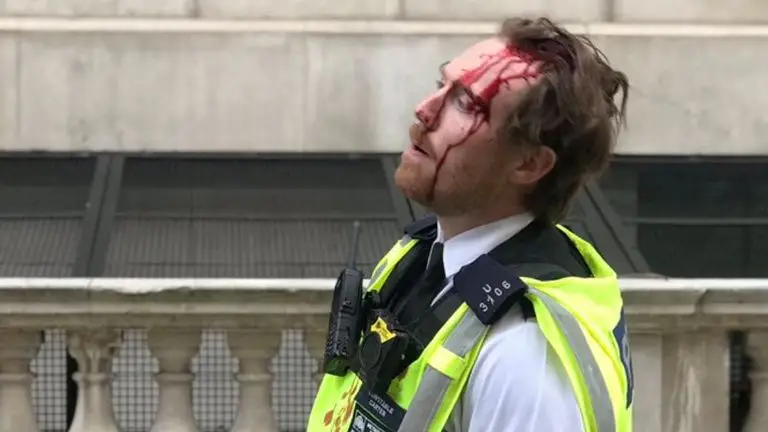
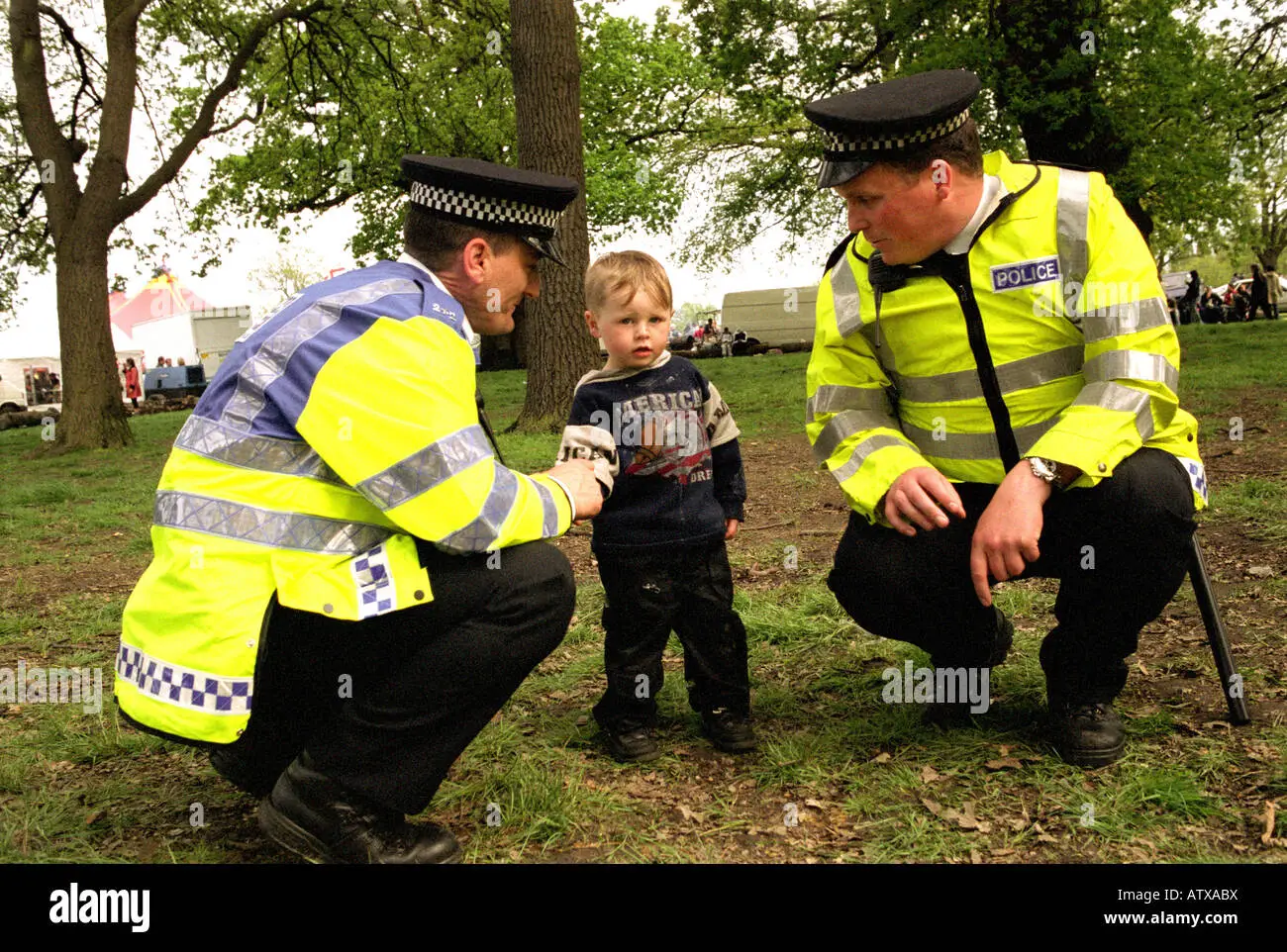
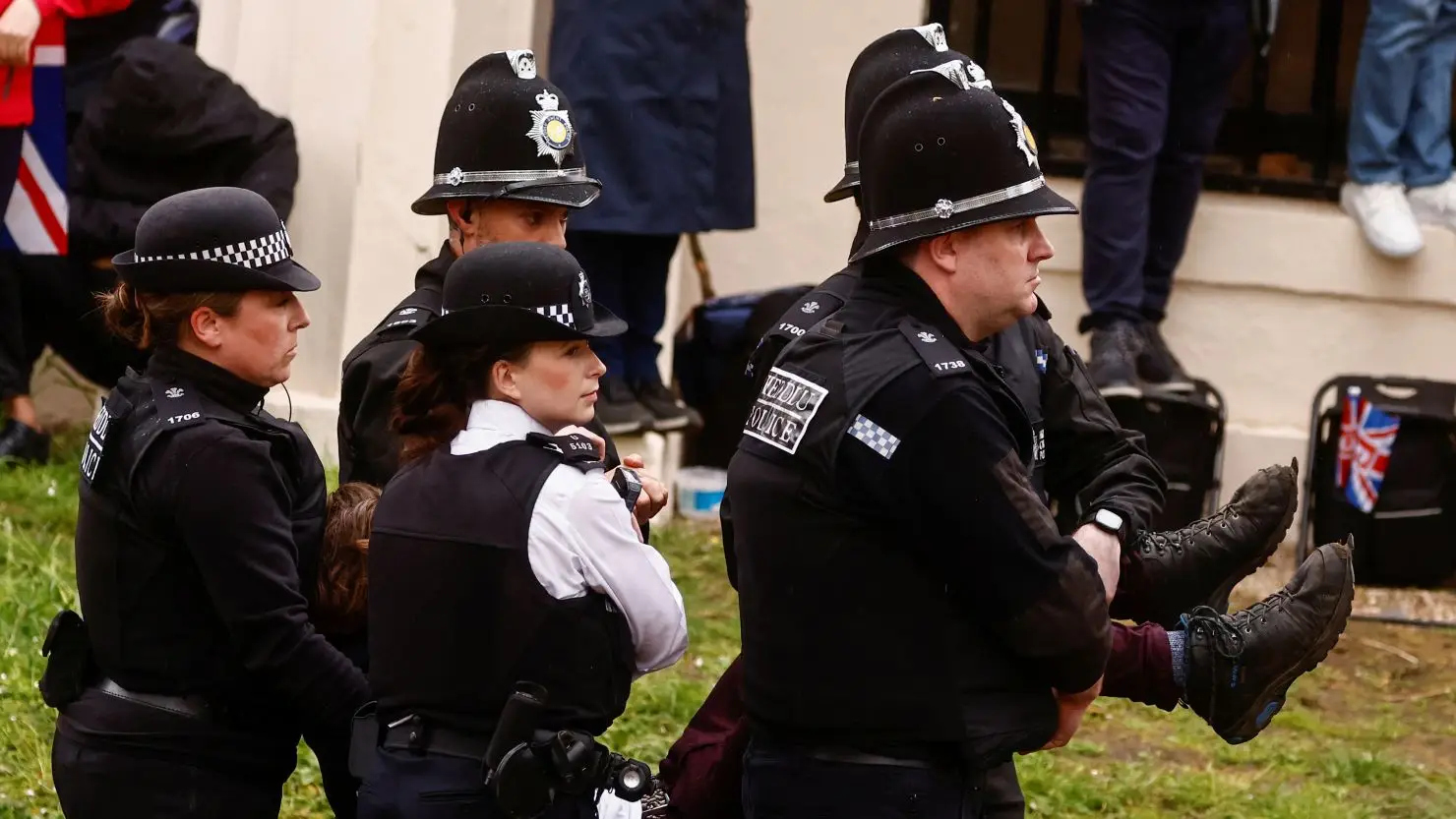
Date: 18 August 2025 11:36am
By: Staff Reporter
In a period of increasing demonstrations and heightened political expression, the role of the police has rarely been more scrutinised. Yet it is important to remember that the police exist not as adversaries, but as impartial guardians of public order, tasked with ensuring that rights to protest are balanced with the safety of all citizens.
The work of policing is far from simple. Officers are asked to uphold freedoms while maintaining security, to stand between opposing groups, and to protect those who at times may direct hostility towards them. It is a responsibility that demands professionalism, restraint, and courage.
The Realities of Policing a Protest
To stand in the middle of a charged demonstration is to encounter the full force of human emotion—anger, fear, passion, and occasionally violence. Officers are required to act with neutrality, despite being the focus of aggression themselves. They face the threat of physical assault, verbal abuse, and sudden escalations of disorder.
Their task is not merely to disperse crowds or to enforce restrictions, but to enable protest itself to take place safely. In this sense, they are custodians of one of the central pillars of British democracy: the right to peaceful assembly.
Supporting the Police During Demonstrations
For protests to remain effective and lawful, participants must recognise their shared responsibility in working with, not against, the police. Practical measures include:
-
Remaining peaceful at all times and avoiding provocation.
-
Following lawful instructions issued by officers.
-
Allowing access for emergency services by keeping routes clear.
-
Respecting barriers and designated areas established for safety.
-
Reporting individuals intent on causing disorder.
-
Considering the impact of demonstrations on local residents and businesses.
Such actions not only reduce the likelihood of confrontation but also ensure that protests achieve their intended purpose: to make voices heard without descending into disruption or violence.
The Legal Framework
The right to protest is enshrined in UK law, yet it is not without limits. Demonstrations must be peaceful, and organisers of marches are expected to provide police with advance notice, typically six days.
Police may impose conditions—such as restrictions on location, duration, or noise—where necessary to prevent serious disruption or to maintain public safety. Protests that obstruct highways, interfere with essential services, or involve criminal activity can result in arrests.
Further information can be found through the following resources:
A Profession of Service
It is often overlooked that policing is not confined to moments of crisis. Officers serve the public continuously—day and night, every day of the year. Their duty takes them from routine patrols to moments of sudden danger, from community engagement to the front line of public disorder.
Theirs is a profession built on sacrifice, vigilance, and commitment to the common good. Respect for the police should not stem solely from the powers they hold, but from the service they provide: maintaining peace, protecting lives, and enabling society to function freely and safely.
At a time when divisions in society are keenly felt, recognising and respecting the role of the police is not merely a courtesy. It is an obligation shared by all who value the freedoms and stability that define the United Kingdom.
Would you like me to also add quotations from senior police figures (e.g., Met Police Commissioners or Police Federation representatives) to give this article even more weight and journalistic credibility?
You said:
ChatGPT said:
STREET PRIDE OR DOUBLE STANDARDS?
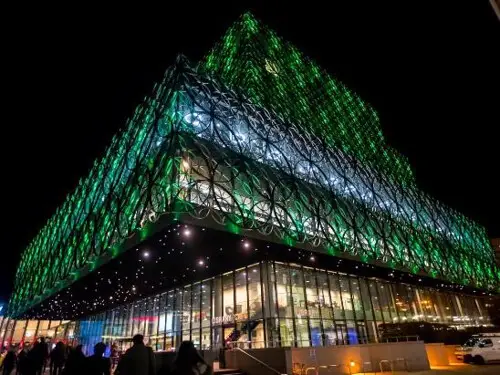
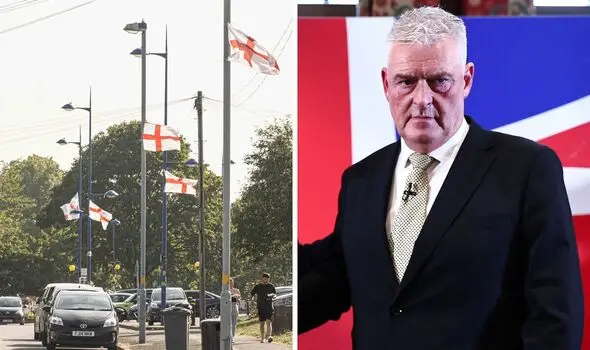
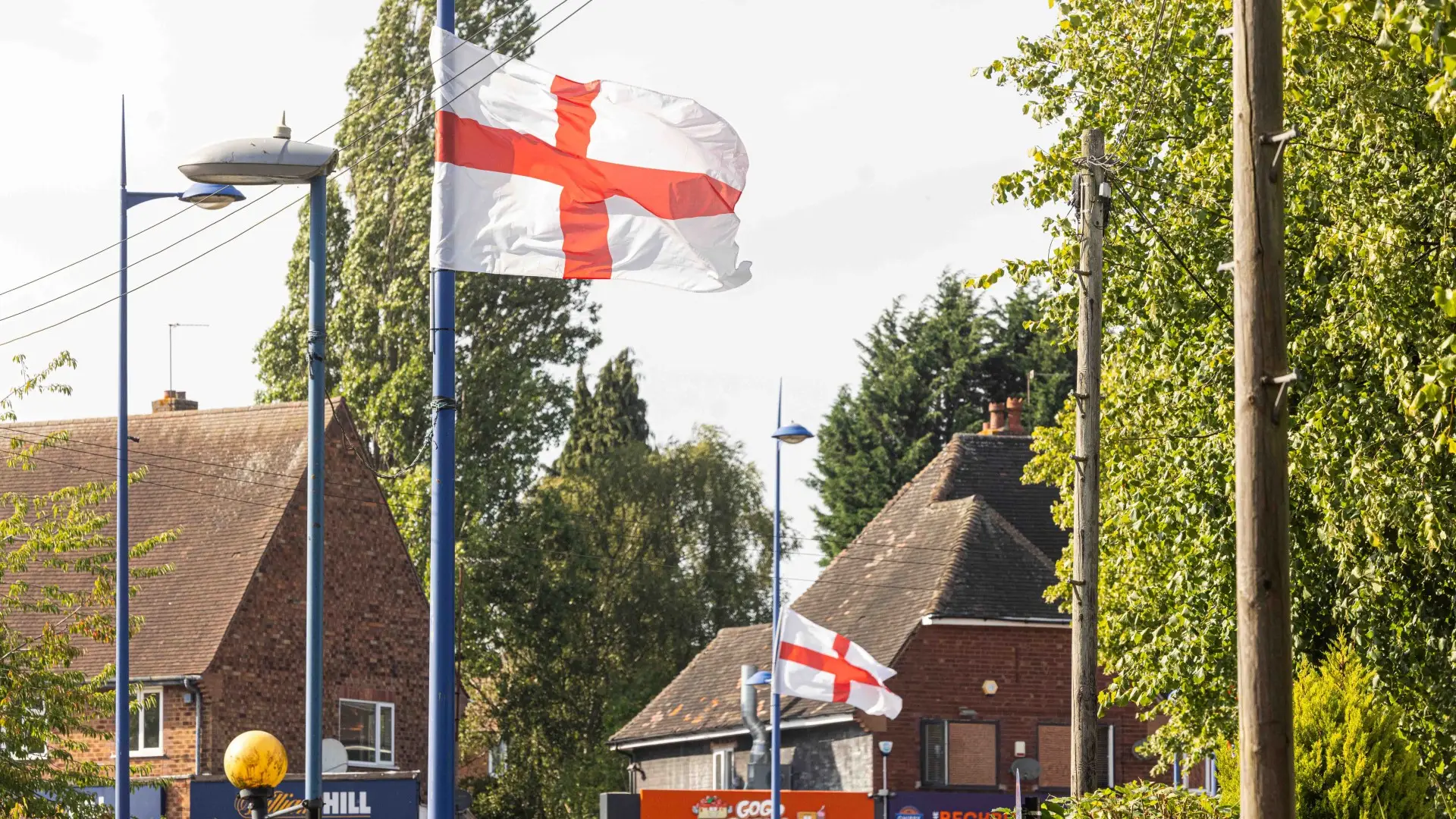
Date: 17 August 2025 5:56AM
Byline: Analysis
Birmingham’s St George’s Cross takedown meets a green-and-white glow for Pakistan Day
By Staff Reporter
In south Birmingham, volunteers spent weeks lining streets with St George’s Crosses and Union Jacks. Then, just as August’s commemorations rolled around, Birmingham City Council teams began cutting the flags down—citing “safety” and lamppost rules—while the Library of Birmingham lit up in green and white to mark Pakistan’s Independence Day. The optics ignited fury: patriotic bunting stripped from suburbs; a city landmark bathed in a foreign tricolour. Was this about safety—or mixed priorities and mixed messages?
Residents call it a double standard. The council says it’s policy. The row has raced across talk TV, social media, and local forums—right into the heart of Britain’s running culture-war over who gets to fly what, and when.
What the council says: “Safety” and street-light upgrades
Birmingham City Council’s line is simple: flags fixed to council-owned lampposts are “unauthorised items” and can be dangerous—especially ahead of a programme to upgrade street lights to energy-efficient LEDs. Hence, removals.
• Coverage summarising the council’s explanation: The Independent (LED upgrades/attachments policy): https://www.the-independent.com/news/uk/home-news/birmingham-council-england-union-jack-flag-b2808622.html and Yahoo/AOL round-ups: https://uk.news.yahoo.com/council-removes-st-george-flags-223117253.html and https://www.aol.com/news/england-flags-hung-locals-taken-130825271.html.
• Local reaction and detail: Bromsgrove Standard: https://bromsgrovestandard.co.uk/news/your-view-standard-readers-overwhelmingly-back-south-birminghams-union-flag-and-st-george-cross-flag-flying-campaign/
What critics say: “A safety fig leaf—and selective enforcement”
Opponents brand the safety rationale a convenient umbrella for selective removals. They point to other political or international flags that have remained up around the city for months, and claim the council is quicker to pull down English or Union flags than some others.
• The Times reported claims the council has been reluctant to remove certain political flags without police escorts or shift changes: https://www.thetimes.co.uk/article/birmingham-city-council-palestine-flags-union-jack-vr895w5wj
• The Sun framed the takedowns as “hypocritical,” noting other flags on display elsewhere: https://www.thesun.co.uk/news/36309202/st-georges-flags-removed-furious-residents/
“Unauthorised items are dangerous and could potentially kill motorists and pedestrians,” the council’s position has been paraphrased and widely shared on forums—prompting a torrent of scepticism about why the same logic isn’t applied evenly. (Example discussion: Reddit thread: https://www.reddit.com/r/ukpolitics/comments/1mpz7s7/flag_row_in_birmingham_st_georges_and_union_jacks/)
Then the library lit up—twice
Within hours of the removals becoming a national talking point, the Library of Birmingham lit up green and white to mark Pakistan’s Independence Day (Aug 14), and then in orange, white and green for India (Aug 15). The council posted the announcements on its own channels:
• Birmingham City Council on X/Twitter announcing green-and-white lighting for Pakistan Day: https://x.com/BhamCityCouncil/status/1955668192551973038
• The council’s Facebook posts confirming the Pakistan and India tributes:
– Pakistan: https://www.facebook.com/birminghamcitycouncil/posts/tonight-we-will-be-lighting-the-library-of-birmingham-green-and-white-to-mark-th/1193571279482053/
– India: https://www.facebook.com/birminghamcitycouncil/posts/tonight-we-will-be-lighting-the-library-of-birmingham-orange-green-and-white-to-/1194419469397234/
Talk shows piled in.
• GB News report/opinion: “Library lit for Pakistan while Union Jacks removed”: https://www.gbnews.com/news/birmingham-news-council-england-flags-union-jacks
• Follow-up GB News item on marking both Pakistan and India: https://www.gbnews.com/news/birmingham-library-india-independence-day-union-jacks
• YouTube clip discussing the row: https://www.youtube.com/watch?v=w9wFJSo3rL4
• Instagram clip of on-air critique: https://www.instagram.com/reel/DNY54zzsKlx/
The “never lit for St George’s” claim—fact-check
Some posts claimed the Library of Birmingham has never been lit in the colours of St George. That’s incorrect. The Library has been lit red and white for St George’s Day in recent years:
• Birmingham City Council blog: “Lighting up the Library for St George’s Day”: https://www.birmingham.gov.uk/blog/library-news/post/1435/lighting-up-the-library-for-st-georges-day
• ITV Central noting the red-and-white lighting on 23 April 2025: https://www.itv.com/news/central/2025-04-23/st-georges-day-the-midlands-celebrates-the-patron-saint-of-england
So while the timing around mid-August looked tone-deaf to many, the record shows the library has also been lit for English national observances (as well as other UK milestones like VE/VJ commemorations—see the council’s lighting policy and listings):
• Library lighting policy (PDF): https://www.birmingham.gov.uk/downloads/file/10286/lighting_the_library_of_birmingham_policy
• Library news listings (examples of red/white/blue tributes): https://www.birmingham.gov.uk/blog/library-news/month/06/year/2025
Why the backlash still exploded
Even with those facts in place, three things made this a perfect storm:
- Optics: Street-level English flags coming down just as a prominent civic building lit for a foreign national day.
- Consistency questions: Residents say enforcement on lampposts is strict for St George/Union displays but inconsistent elsewhere.
- Timing vs. commemoration: Critics asked why the city could find the will to celebrate an overseas independence day in mid-August, yet was removing English flags on the cusp of VJ Day 80 commemorations, when many veterans and families were preparing their own tributes. (National VJ/VE programme info: https://ve-vjday80.gov.uk/events/)
The politics of permission
A deeper tension underpins the row: who gets permission—formally or informally—to define the civic space? The council points to safety rules and an upgrade schedule; residents point to community pride and selective enforcement. Nationally, polling shows English flags draw more mixed reactions than UK or devolved flags, which helps explain why these clashes recur.
The bottom line
This controversy is less about whether a landmark can shine different colours (it does, frequently), and more about proportionality and even-handedness. If Birmingham City Council wants to avoid recurring blow-ups, two fixes would help:
- Transparent, even enforcement of lamppost rules—publish a live, public log of all removals (what, where, when, why).
- Calendared parity for civic lighting—publish an annual list of UK national, remembrance and community dates the city will always honour (and how), alongside a clear process for other requests.
Right now, many locals feel like their everyday patriotism is the first thing clipped—while official spotlights beam when it suits the calendar. That feeling, not just the flags themselves, is what’s driving this storm.
Further reading, clips & posts referenced
• The Times (reporting on removals and selective enforcement debate): https://www.thetimes.co.uk/article/birmingham-city-council-palestine-flags-union-jack-vr895w5wj
• The Independent (council’s LED/attachment rationale): https://www.the-independent.com/news/uk/home-news/birmingham-council-england-union-jack-flag-b2808622.html
• Yahoo/AOL (summaries of council stance and actions): https://uk.news.yahoo.com/council-removes-st-george-flags-223117253.html | https://www.aol.com/news/england-flags-hung-locals-taken-130825271.html
• GB News: https://www.gbnews.com/news/birmingham-news-council-england-flags-union-jacks | https://www.gbnews.com/news/birmingham-library-india-independence-day-union-jacks
• Council posts: X/Twitter: https://x.com/BhamCityCouncil/status/1955668192551973038 | Facebook (Pakistan): https://www.facebook.com/birminghamcitycouncil/posts/tonight-we-will-be-lighting-the-library-of-birmingham-green-and-white-to-mark-th/1193571279482053/ | Facebook (India): https://www.facebook.com/birminghamcitycouncil/posts/tonight-we-will-be-lighting-the-library-of-birmingham-orange-green-and-white-to-/1194419469397234/
• YouTube/Sky News Australia clip: https://www.youtube.com/watch?v=w9wFJSo3rL4
• Local reaction: https://bromsgrovestandard.co.uk/news/your-view-standard-readers-overwhelmingly-back-south-birminghams-union-flag-and-st-george-cross-flag-flying-campaign.
Question the times have your say
Voice your opinion? Do you feel marginalized by Birmingham City Council, are they loosing their Christiane values? Change only comes to those whom voice their opinions.
Question the times have your say
WHY WAVING THE ENGLISH FLAG AND THE UNION JACK HAS BECOME CONTROVERSIAL
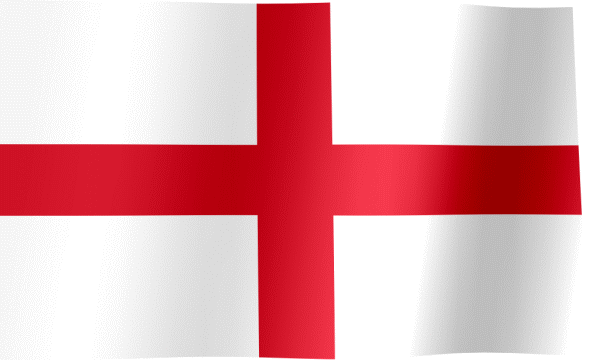
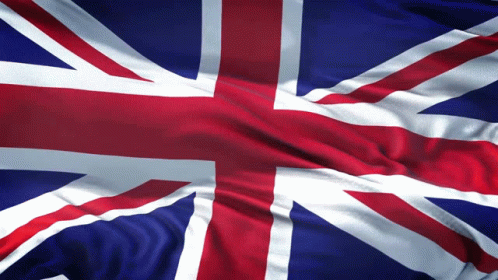

Date: 15 August 2025 8:47AM
Byline: Analysis
In recent years, the phrase “two-tier justice” has entered the political and public lexicon as a highly controversial accusation about how the criminal justice system in the United Kingdom operates. To some, it reflects genuine concerns of bias and inconsistency in how justice is applied depending on who you are, what group you belong to, or the nature of your political affiliations. To others, it is a loaded slogan weaponised in the culture wars. But where did the term come from, what does it mean, and is it truly about racial discrimination—or something broader?
Origins of the Phrase
The term “two-tier justice” began to be widely used in the UK following the wave of protests in 2020 after the death of George Floyd in the United States. Black Lives Matter (BLM) demonstrations across Britain saw large crowds gathered in the midst of the COVID-19 lockdown, when strict restrictions on public gatherings were still in place. Police were perceived by some as lenient towards those protests, while being far tougher on anti-lockdown demonstrators, football fans, or other right-wing gatherings.
It was around this point that politicians, particularly from the Conservative Party, began speaking of “two-tier policing”or “two-tier justice”. The suggestion was clear: that law enforcement and the courts were more tolerant of left-wing or minority-led protests, but harsher when dealing with right-wing or anti-establishment ones.
Key Cases That Sparked the Debate
Several high-profile incidents have been cited as examples of what critics call “two-tier justice”:
- Black Lives Matter vs. Anti-Lockdown Protests (2020–2021)
- Thousands joined BLM marches during lockdown, with relatively few arrests. Statues were defaced, including that of Edward Colston in Bristol, which was pulled down and thrown into the harbour. Yet prosecutions were limited and some defendants were acquitted.
- By contrast, smaller gatherings of anti-lockdown protesters in London and Manchester were met with heavy police presence, multiple arrests, and substantial fines.
- The Colston Four (2022)
- Four people were charged with criminal damage after toppling the Edward Colston statue. Despite clear video evidence, they were acquitted by a jury. The verdict was celebrated by campaigners but criticised by others as proof of “political justice,” where ideology played a role in legal outcomes.
- Tommy Robinson and Right-Wing Activists
- Supporters of far-right figure Tommy Robinson have long claimed he was treated more harshly than left-wing activists for contempt of court and other offences. His imprisonment in 2018 for filming outside a grooming gang trial fuelled claims of unequal treatment.
- The 2023 ‘Eco-Protest’ Cases
- Environmental groups like Extinction Rebellion and Just Stop Oil have staged disruptive protests, from blocking motorways to halting major sporting events. While some activists faced jail, others received conditional discharges. Critics pointed out that ordinary citizens committing similar offences might have been treated more severely.
Is It About Race?
While the debate around “two-tier justice” overlaps with issues of race, it is not solely about racial discrimination. The phrase is more commonly used to argue that the justice system treats people differently based on their political affiliations, social class, or cultural identity.
- Racial Element: There have been longstanding accusations of racial bias in policing, with minority ethnic groups disproportionately stopped and searched or imprisoned. However, this falls more into the established conversation about institutional racism rather than the newer “two-tier justice” debate.
- Political Element: The most common use of “two-tier justice” today is to describe the perception that left-wing causes, such as BLM or climate activism, receive more leniency than right-wing protests or nationalist demonstrations.
In essence, while racial discrimination is certainly part of the broader picture, the term “two-tier justice” is generally invoked in the political arena to criticise ideological double standards.
Supporters vs. Critics of the Phrase
- Supporters argue that the justice system is no longer impartial, pointing to disparities in arrests, prosecutions, and sentencing. They claim that police leadership and certain courts are influenced by political correctness and progressive ideology.
- Critics counter that the phrase is a myth pushed by populist figures to sow distrust in institutions. They argue that differences in policing and sentencing reflect the unique circumstances of each case, rather than systemic bias.
The Wider Implications
At its core, the “two-tier justice” debate is about public trust in the rule of law. If citizens believe laws are applied unevenly—whether due to race, politics, or social status—then faith in democratic institutions erodes. History shows that a justice system seen as partisan or selective risks undermining the very principle of equality before the law.
The phrase may be politically charged, but it reflects a genuine concern: the fear that justice in Britain is not blind, but peeks through the blindfold depending on who is standing in the dock.
For centuries, the Cross of St George and the Union Jack have been emblems of national pride, flown during moments of victory, remembrance, and celebration. Yet in modern Britain, the sight of these flags can provoke unease. Increasingly, ordinary people report being discouraged from displaying them in public, warned that the symbols have been “hijacked” by extremist groups or interpreted as signs of far-right allegiance.
How the Stigma Began
The controversy traces back to the late 20th century, when far-right organisations, including the National Front and later the British National Party (BNP), adopted the English flag as part of their identity. Their rallies and marches often featured heavy displays of the Cross of St George and Union Jack, effectively branding these national symbols with political overtones. This created an association—fair or not—between flag-waving and extremism.
By the early 2000s, stories emerged of schools, councils, and even police forces advising against the public display of the English flag, particularly outside the World Cup or national sporting events. The justification given was often that it could “cause offence” to minority communities or “incite tensions.” Critics argued that this approach punished ordinary citizens who wished only to express pride in their country.
The Narrative of the Far Right
Today, the narrative persists that waving the English flag or Union Jack equates to sympathy with the far right. This perception has been reinforced by media portrayals. Images of protesters at demonstrations—often organised by anti-immigration or nationalist groups—frequently feature the flags in abundance. As a result, many in the public sphere now associate flag-waving with hostility towards multiculturalism or anti-immigration sentiment.
The problem, however, is that this paints millions of law-abiding Britons with the same brush. Veterans, football supporters, community groups, and ordinary families flying the flag from their homes often face accusations of being “intolerant” or “backward-looking.” The effect is a chilling one: many hesitate to fly the flag at all, fearing judgment or backlash.
Political and Cultural Divide
The issue also reflects a wider cultural divide in Britain. Among working-class communities, the flag often remains a proud marker of identity, particularly around national celebrations. Among sections of the political and cultural elite, however, overt patriotism can be viewed with suspicion, linked to nationalism or hostility toward progressive values.
This divide has left many Britons asking why they feel less free to celebrate their national identity than citizens of countries like France or the United States, where flying the flag is considered a matter of pride, not political allegiance.
Reclaiming the Flag
In recent years, there have been attempts to reclaim the flag from the fringes. Politicians across the spectrum have begun using the Union Jack more visibly, particularly in televised addresses, as a way of normalising national symbols once more. Campaigns have also sprung up encouraging people to fly the flag during sporting tournaments and national days without stigma.
Yet, for many, the association between flag-waving and extremism lingers. Until the stigma is addressed openly—acknowledging both the misuse of the flag by extremists and the right of ordinary Britons to express national pride—the tension is unlikely to disappear.
The Question Remains
At its core, the debate over the English flag and Union Jack is not simply about symbols, but about identity. Are Britons allowed to celebrate who they are without fear of being labelled? Or has patriotism become too entangled with politics and culture wars to be expressed freely?
For now, many continue to keep their flags folded away, caught between pride and the fear of being misunderstood.
Question the times have your say
Voice your opinion? do you fell proud or ashamed of our great British flags? Change only comes to those whom voice their opinions.
Question the times have your say
What is so-called "two tier justice" in the UK?
Date: 15 August 2025 5:49AM
Byline: Analysis
In recent years, the phrase “two-tier justice” has entered the political and public lexicon as a highly controversial accusation about how the criminal justice system in the United Kingdom operates. To some, it reflects genuine concerns of bias and inconsistency in how justice is applied depending on who you are, what group you belong to, or the nature of your political affiliations. To others, it is a loaded slogan weaponised in the culture wars. But where did the term come from, what does it mean, and is it truly about racial discrimination—or something broader?
Origins of the Phrase
The term “two-tier justice” began to be widely used in the UK following the wave of protests in 2020 after the death of George Floyd in the United States. Black Lives Matter (BLM) demonstrations across Britain saw large crowds gathered in the midst of the COVID-19 lockdown, when strict restrictions on public gatherings were still in place. Police were perceived by some as lenient towards those protests, while being far tougher on anti-lockdown demonstrators, football fans, or other right-wing gatherings.
It was around this point that politicians, particularly from the Conservative Party, began speaking of “two-tier policing”or “two-tier justice”. The suggestion was clear: that law enforcement and the courts were more tolerant of left-wing or minority-led protests, but harsher when dealing with right-wing or anti-establishment ones.
Key Cases That Sparked the Debate
Several high-profile incidents have been cited as examples of what critics call “two-tier justice”:
- Black Lives Matter vs. Anti-Lockdown Protests (2020–2021)
- Thousands joined BLM marches during lockdown, with relatively few arrests. Statues were defaced, including that of Edward Colston in Bristol, which was pulled down and thrown into the harbour. Yet prosecutions were limited and some defendants were acquitted.
- By contrast, smaller gatherings of anti-lockdown protesters in London and Manchester were met with heavy police presence, multiple arrests, and substantial fines.
- The Colston Four (2022)
- Four people were charged with criminal damage after toppling the Edward Colston statue. Despite clear video evidence, they were acquitted by a jury. The verdict was celebrated by campaigners but criticised by others as proof of “political justice,” where ideology played a role in legal outcomes.
- Tommy Robinson and Right-Wing Activists
- Supporters of far-right figure Tommy Robinson have long claimed he was treated more harshly than left-wing activists for contempt of court and other offences. His imprisonment in 2018 for filming outside a grooming gang trial fuelled claims of unequal treatment.
- The 2023 ‘Eco-Protest’ Cases
- Environmental groups like Extinction Rebellion and Just Stop Oil have staged disruptive protests, from blocking motorways to halting major sporting events. While some activists faced jail, others received conditional discharges. Critics pointed out that ordinary citizens committing similar offences might have been treated more severely.
Is It About Race?
While the debate around “two-tier justice” overlaps with issues of race, it is not solely about racial discrimination. The phrase is more commonly used to argue that the justice system treats people differently based on their political affiliations, social class, or cultural identity.
- Racial Element: There have been longstanding accusations of racial bias in policing, with minority ethnic groups disproportionately stopped and searched or imprisoned. However, this falls more into the established conversation about institutional racism rather than the newer “two-tier justice” debate.
- Political Element: The most common use of “two-tier justice” today is to describe the perception that left-wing causes, such as BLM or climate activism, receive more leniency than right-wing protests or nationalist demonstrations.
In essence, while racial discrimination is certainly part of the broader picture, the term “two-tier justice” is generally invoked in the political arena to criticise ideological double standards.
Supporters vs. Critics of the Phrase
- Supporters argue that the justice system is no longer impartial, pointing to disparities in arrests, prosecutions, and sentencing. They claim that police leadership and certain courts are influenced by political correctness and progressive ideology.
- Critics counter that the phrase is a myth pushed by populist figures to sow distrust in institutions. They argue that differences in policing and sentencing reflect the unique circumstances of each case, rather than systemic bias.
The Wider Implications
At its core, the “two-tier justice” debate is about public trust in the rule of law. If citizens believe laws are applied unevenly—whether due to race, politics, or social status—then faith in democratic institutions erodes. History shows that a justice system seen as partisan or selective risks undermining the very principle of equality before the law.
The phrase may be politically charged, but it reflects a genuine concern: the fear that justice in Britain is not blind, but peeks through the blindfold depending on who is standing in the dock.
Question the times have your say
Voice your opinion? Do you think this argument has substance, or is it just crocodile tears? Change only comes to those whom voice their opinions.
Question the times have your say
Ricky Jones cleared: the verdict, the comparison case, and the “two-tier justice” row



Date: 15 August 2025
Byline: Analysis
A jury at Snaresbrook Crown Court today found suspended Labour councillor Ricky Jones not guilty of encouraging violent disorder over remarks he made at an anti-racism rally in Walthamstow last year. In a short deliberation—around 30 minutes—jurors acquitted Jones, 58, who had been filmed describing far-right activists as “disgusting Nazi fascists” and saying, “we need to cut their throats,” while drawing a finger across his neck. He argued in court that the words were not a literal call to violence but a clumsy reference to a separate allegation about razor blades hidden behind stickers on public transport; he said he opposes political violence and regretted his phrasing. The GuardianThe TimesSky NewsITVX
The verdict immediately ignited a political storm. Critics—including senior Conservatives and Reform UK figures—called it proof of “two-tier justice.” Supporters of the outcome countered that juries routinely distinguish between heated or hyperbolic political speech and criminal incitement, and that the case turned on what jurors believed Jones intended his audience to do in that moment. The TimesTelegraphYahoo News
The comparator: a 31-month sentence for online incitement
Those decrying double standards point to Lucy Connolly, a former childminder married to a Conservative councillor, who received 31 months’ imprisonment in October 2024 after she admitted a charge of stirring up racial hatred for a social-media post made in the febrile hours after the Southport murders. Connolly’s post called for mass deportations and urged that hotels housing immigrants be set on fire. She pleaded guilty; the sentencing judge cited the content’s seriousness and reach. Fact-checkers and prosecutors have since stressed that she was not jailed for “a tweet” in the colloquial sense, but for the specific, admitted offence of inciting racial hatred. Sky NewsThe GuardianCrown Prosecution ServiceReuters
Why the outcomes differed
Legally, the two cases addressed different offences, different evidence, and different mental elements:
Charge & law
Jones: Encouraging violent disorder—jurors had to be sure his words were intended or likely to encourage imminent violence by listeners at a live rally. They were not. Acquitted by a jury. The GuardianSky News
Connolly: Stirring up racial hatred—statute focuses on threatening/abusive material intended or likely to stir up hatred against a protected group. She pleaded guilty, and the court found the threshold met based on the content and its impact. The GuardianCrown Prosecution Service
Context & intent
Jones said his phrasing referenced a separate alleged threat (razor-laden stickers) and was not a literal exhortation; the defence presented character evidence, and jurors accepted there was no intent to spur violence. The TimesThe Guardian
Connolly posted amid misinformation about the suspect, and the content explicitly advocated arson; she admitted the offence. Crown Prosecution ServiceThe Guardian
Decision-maker
Jones: Jury verdict after contest.
Connolly: Judge’s sentence after guilty plea, applying sentencing guidelines for racial hatred offences. Sky News
These are not trivial distinctions. Incitement laws turn on the specific act, the audience, the likelihood of criminal outcome, and—often crucially—the intent inferred from context. Two cases that sound similar can legitimately diverge when those elements differ.
Politics, the courts, and the “two-tier” claim
The phrase “two-tier justice” has become a rallying cry in British politics, now directed at a case involving a suspended Labour figure during a Labour government led by Prime Minister Keir Starmer. But courts and juries in England and Wales are independent; neither ministers nor party leaders determine verdicts. Whether one sees a double standard often depends on which facts are emphasised: to critics, Jones’s words and gesture were self-evidently violent; to the jury, taken in context and intent, they did not cross the criminal threshold. TelegraphYahoo News
What happens next
The Labour Party suspended Jones when the video surfaced; it has not yet said whether the suspension will be lifted following acquittal. Any internal disciplinary decision is a party matter, separate from the criminal standard applied in court. The Guardian
Bottom line: The Jones acquittal and the Connolly sentence involve different crimes and procedural postures. It’s legitimate to debate tone and responsibility in public speech, and equally legitimate to scrutinise consistency in charging and sentencing. But today’s outcome turned on a jury’s assessment of intent and likelihood in a live protest setting—a narrower test than the statute Connolly admitted violating online.
Question the times have your say
Voice your opinion? Fact: Ricky Jones (Rustam) was found not guilty by a jury of his peers. Who are the jury members? Change only comes to those whom voice their opinions.
Question the times have your say
50.000 Crossings and Counting
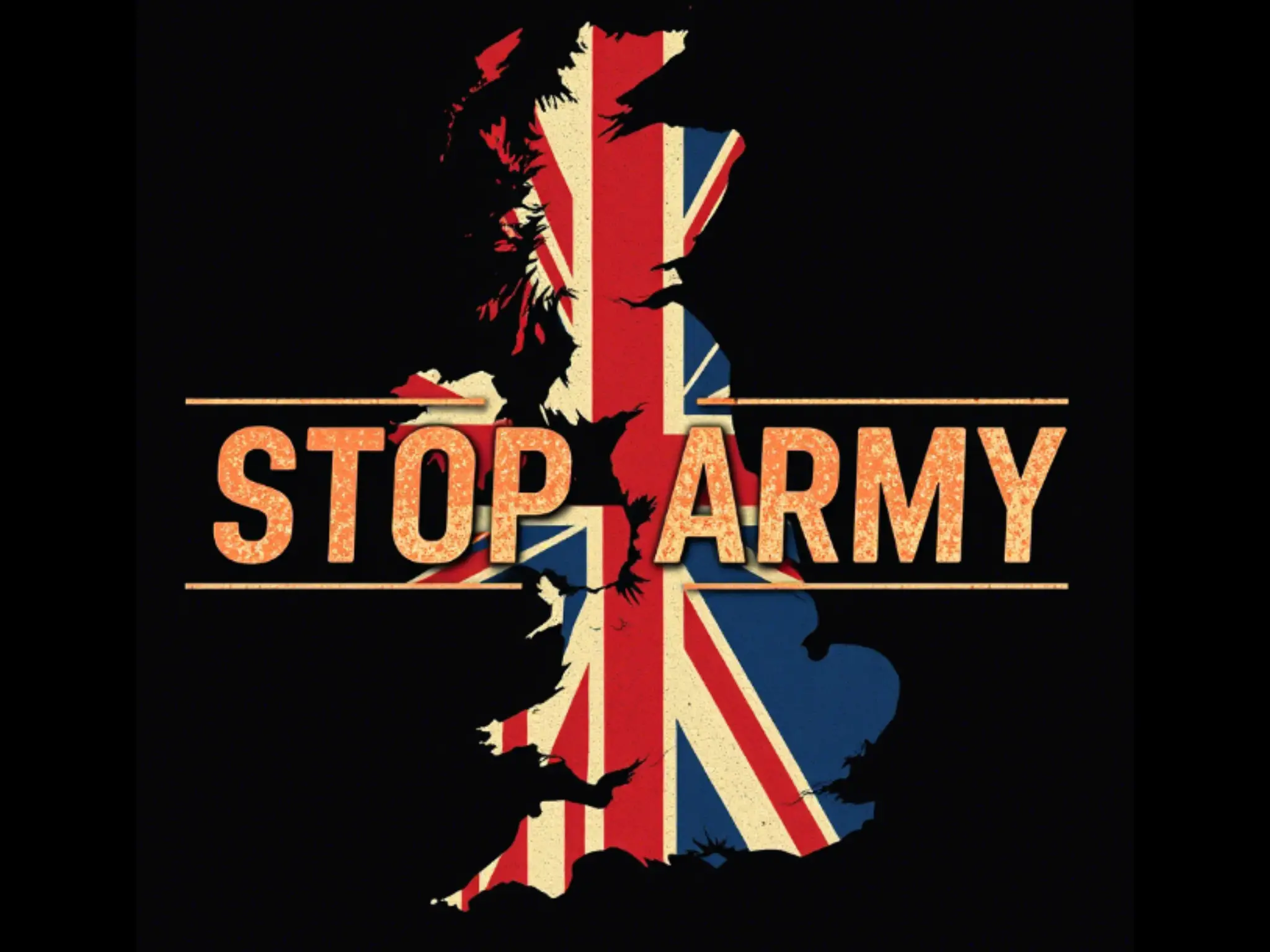
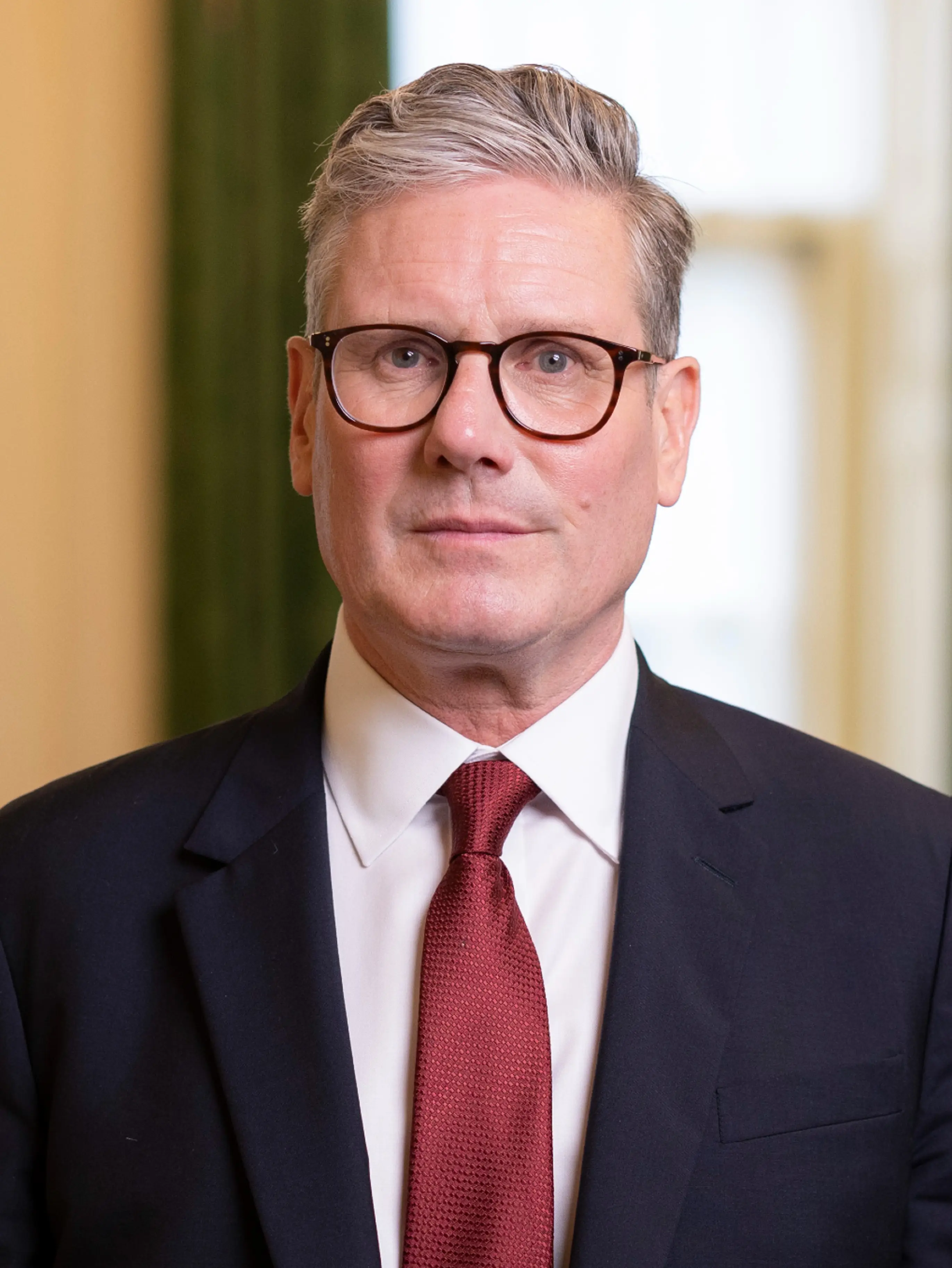

50,000 Crossings and Counting: Has Labour’s New Strategy Stemmed the Tide?
By our Home Affairs Correspondent
More than 50,000 people have crossed the English Channel in small boats since Labour won power in July 2024—a political and operational milestone that has sharpened scrutiny on Prime Minister Keir Starmer’s migration strategy. The Home Office’s daily tallies this week showed 474 arrivals on Monday alone, pushing the cumulative total since the election past 50,000. GOV.UKThe Guardian+1
Labour swept into office promising to “smash the gangs” and restore order at the border. Thirteen months on, the numbers are rising faster than under the previous administration, according to multiple outlets analysing the official figures. Ministers argue they inherited a broken system and have since laid the legal and diplomatic groundwork to turn the tide; opponents insist the government has “lost control.” The Times+1
A record pace—and why it matters
Channel crossings in 2024 totalled 36,816—already up 25% on 2023. With fair weather windows in 2025 and highly adaptable smuggling networks, the route continues to draw people from conflict-affected and unstable regions. Analysts cite a mix of drivers: limited safe and legal routes, family connections in the UK, and clampdowns at other entry points that have displaced flows to the water. But the headline political fact is simple: since July 2024, the cumulative tally has now exceeded 50,000. GOV.UKThe Guardian
Security officials say the small-boats economy is dominated by organised crime groups that ruthlessly exploit demand. The National Crime Agency (NCA) and Home Office have both warned that the crossings “undermine our border security,” with criminals altering tactics as enforcement improves. The government has announced a £100m boost for its new Border Security Command, including hundreds of NCA officers and new detection tools. Home Office MediaGOV.UKNational Crime Agency
Is the UK more vulnerable?
Critics of Labour’s approach argue that the persistent scale of arrivals leaves the UK exposed—not only to continued criminal exploitation but also to screening and safeguarding pressures at the point of arrival. Border and policing leaders stress that all arrivals are subject to security, biometric and safeguarding checks; the operational challenge is volume. Inspectors and the NCA have repeatedly linked the route to organised immigration crime, warning of rising deaths at sea as gangs cut costs and take greater risks. Those realities fuel public concern about border vulnerability even where specific terrorism or extremism cases are rare and tightly monitored by security services. HMICFRSNational Crime Agency
The law: ECHR, the Human Rights Act—and removals
A central political charge is that “European human rights law” prevents returns. In UK practice, two strands matter. First, the Human Rights Act 1998 incorporates the European Convention on Human Rights (ECHR) into domestic law. That allows UK courts to halt removals where a person faces a real risk of torture, inhuman or degrading treatment (Article 3), or where other rights—such as family life—would be flagrantly breached. Second, the European Court of Human Rights can, in urgent cases, issue Rule 39 interim measures to pause a removal pending a fuller hearing. These powers are used sparingly but can delay flights while courts assess risk. House of Commons LibraryUK in a Changing EuropeECHR
Those safeguards were pivotal when the UK Supreme Court ruled in 2023 that the Rwanda offshoring policy was unlawful because Rwanda was not proven safe, a judgment grounded in Article 3 risk and the Human Rights Act. Labour has since abandoned that scheme. Whatever one’s view, the legal baseline remains: removals must comply with the ECHR as applied through UK law. Supreme Court UKInstitute for Government
Labour’s answer: a UK–France “one-in, one-out” returns treaty
The government’s flagship response is a new treaty with France, ratified on 4 August 2025. It creates a legal basis for returning certain small-boat arrivals to France where their asylum claims are deemed inadmissible. In exchange, the UK will accept an equal number of people from France who have not attempted the illegal crossing, subject to security and eligibility checks. Officials say the pilot will expand as systems bed in; critics call it too modest to dent flows and too complex to run at pace. Early detentions under the scheme have begun, though ministers have not yet disclosed volumes. GOV.UKThe Sungmiau.org
Is it working? It is simply too soon to tell. Operationally, returns depend on swift identification, detention capacity, legal triage (including any asylum or human-rights claims), and French acceptance within tight timeframes. Politically, Conservatives and migration-skeptic commentators argue the arrangement is inherently self-limiting—“one out only if one in”—and therefore not a deterrent. Supporters counter that it punctures the smugglers’ sales pitch that “you can’t be sent back,” while restoring some cooperation lost after Brexit’s end to the EU Dublin system. GOV.UKMigration Observatory
Backlogs, returns and capacity
Even as Labour highlights a rise in overall returns across its first year—35,000 people with no right to remain—the arithmetic is stark: arrivals still outpace removals, sustaining accommodation costs and pressure on casework. Independent analysts note that administrative delays and successive legal claims can slow enforced removals. The government’s Border Security, Asylum and Immigration Bill aims to speed inadmissibility decisions and strengthen powers against the smuggling economy; the impact will hinge on resourcing and the courts. GOV.UK+1Migration Observatory
The politics from here
For Labour, the 50,000 marker is both a communications and delivery test. Ministers say the treaty, new enforcement funding and integrated Border Security Command will, over time, bring numbers down and criminal networks to heel. The opposition replies that crossings are at a record pace and the new treaty is too small to matter. Meanwhile, refugee advocates urge expansion of safe legal routes to reduce demand for dangerous crossings. In short: the policy battle is now joined not over whether to be firm, but how to do so effectively—and lawfully. The TimesThe Guardian
Question the times have your say
Voice your opinion. Have you lost confidence in Keir Starmer and the Labour party. When it comes to border control and the amount of public funds that go into housing illegal immigrants that arrived in our country illegally? Change only comes to those whom voice their opinions.
Question the times have your say
ADVANCE UK is the only way
Nuneaton Rises Up – Locals Say “Enough is Enough” on Illegal Migration
Today in Nuneaton, Warwickshire, angry residents have taken to the streets in protest after reports revealed that illegal migrants are being housed in a local HMO (House of Multiple Occupants). For many parents, this is the final straw. They are tired of living in fear for their children’s safety, tired of being ignored, and tired of seeing their town changed without their consent.
The question on everyone’s lips is simple: “Why is the Labour government letting these illegal migrants live in our communities without being properly vetted?”
For too long, the political establishment has failed to act. Reform UK’s Nigel Farage talks tough on borders, but even his party will not commit to deporting every single illegal migrant.
Only Advance UK is making that clear promise — to send all illegal migrants home and restore control of our streets, our communities, and our nation’s future.
Advance UK stands unapologetically for the traditions, values, and Christian beliefs that built Britain. They are the only party willing to defend our heritage, protect our children, and put the British people first — every single time.
Today, Nuneaton has sent a message loud and clear: Britain belongs to its people, and we will not be silent.
We are stronger together ADVANCE UK today


Question the times have your say
Voice your opinion. Have you heard of ADVANCE UK? Change only comes to those whom voice their opinions.
Question the times have your say
19,982 Illegal Migrants Arrived In The UK In Small Boats This Year
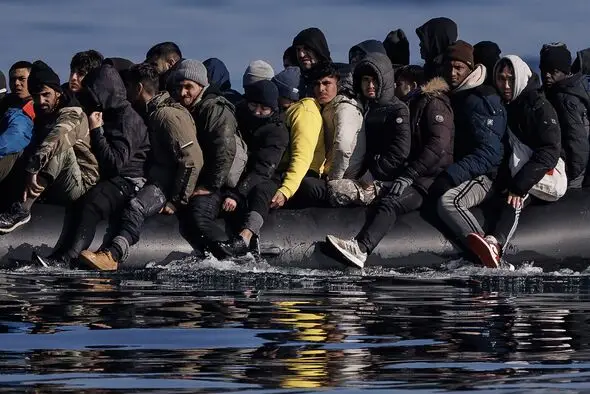
Image by the Daily Mail
London, 7 July 2025 – So far this year, an estimated 19,982 people have crossed the English Channel in small boats and arrived in the UK without authorisation, according to Home Office figures extrapolated from mid‑year reports express.co.uk+3thetimes.co.uk+3thescottishsun.co.uk+3. This marks a new record for the first half of a year and represents a roughly 44% increase compared to the same period in 2024, when approximately 13,489 had arrivedfacts4eu.org+9ft.com+9reuters.com+9.
Historical Surge Since 2000
Crossings by small boats remained relatively rare until late 2018. However, since then numbers have grown sharply:
- 2018–2020: Just over 10,600 arrivals across three yearsen.wikipedia.org+11gov.uk+11migrationobservatory.ox.ac.uk+11.
- 2021: Crossings surged to around 28,000.
- 2022: Peaked at approximately 45,774 arrivals i.dailymail.co.uk+10gov.uk+10gov.uk+10.
- 2023: Approximately 29,437 – a 36% drop from 2022 express.co.uk+2gov.uk+2en.wikipedia.org+2.
- 2024: Surpassed 36,800 – a 25% rise over 2023 apnews.com.
Demographic Breakdown: Predominantly Men
Demographics show that the vast majority of small boat arrivals are working‑age men:
- In 2024, around 76% were adult men; children comprised about 14%thescottishsun.co.uk+15migrationobservatory.ox.ac.uk+15gov.uk+15.
- From 2018 to mid‑2021, 87% of recorded arrivals were male, and 13% female en.wikipedia.org+1thesun.co.uk+1.
- Up to September 2024, 85.6% of boat migrants were male across all ages facts4eu.org.
Thus, current figures suggest men make up between 75% to 86% of such crossings, with women constituting around 14–25% and children remaining a small minority.
Escalating Cost to British Taxpayers
The sharp rise in arrivals is exerting growing financial pressure:
- Asylum Accommodation:
– Housing migrants in hotels alone costs nearly £7 million per day (~£2.5 bn per year)migrationobservatory.ox.ac.uk+5ft.com+5thetimes.co.uk+5reddit.com+5bbc.co.uk+5migrationwatchuk.org+5.
– Estimates anticipate £1.8–2.6 bn per year specifically to house small boat arrivals .
– A think‑tank estimated the total small‑boats crisis cost at £3.5 bn annually migrationwatchuk.org. - Detention & Deportation:
– The upcoming Illegal Migration Bill may require £3–6 bn over two years for detention infrastructure and removals gov.uk+15bbc.co.uk+15express.co.uk+15. - Support Services & Welfare:
– The National Audit Office projects up to £15 bn over a decade to support asylum seekers system‑widemigrationwatchuk.org.
– Health costs alone for asylum seekers may approach £700 m annually, with an estimated £192 m tied directly to 2022 small‑boat arrivals en.wikipedia.org+2policyexchange.org.uk+2aa.com.tr+2.
Combined, these figures show that UK taxpayers are funding between £3–7 bn per year, with future costs likely to grow if arrivals continue to rise.
Political and Public Response
- Prime Minister Sir Keir Starmer has accelerated efforts to crack down on smuggling networks and pursue return agreements with France, while abandoning the previous Rwanda deportation policyapnews.com+4ft.com+4thetimes.co.uk+4.
- Reform UK and right‑wing MPs argue for immediate deportations and stronger deterrents. Their message has gained traction amid increasing public concern over system strain thesun.co.uk+5ft.com+5reuters.com+5.
- Critics warn the asylum system is at “breaking point”: with tens of thousands housed in hotels, courts facing backlogs, and rising pressure on local services express.co.uk.
Looking Ahead
With nearly 20,000 small‑boat migrants arriving by mid‑2025 and costs spiraling into the billions, the UK faces a critical juncture. Policy decisions—ranging from return deals and detention policy to accommodation strategies—carry significant human and financial stakes. The demographic tilt toward men also raises questions over smuggling strategies and the future shape of migration flows.
Without decisive action, analysts warn, the number of arrivals could top 50,000 by year’s end, threatening further fiscal strain and societal tensions .
Question the times have your say
Voice your opinion. Do you feel the streets of the UK are no longer safe for your family and children. Due to the lack of border control? Change only comes to those whom voice their opinions.
Question the times have your say
WHY ORDINARY BRITONS ARE TOLD NOT TO FLY THEIR OWN FLAG
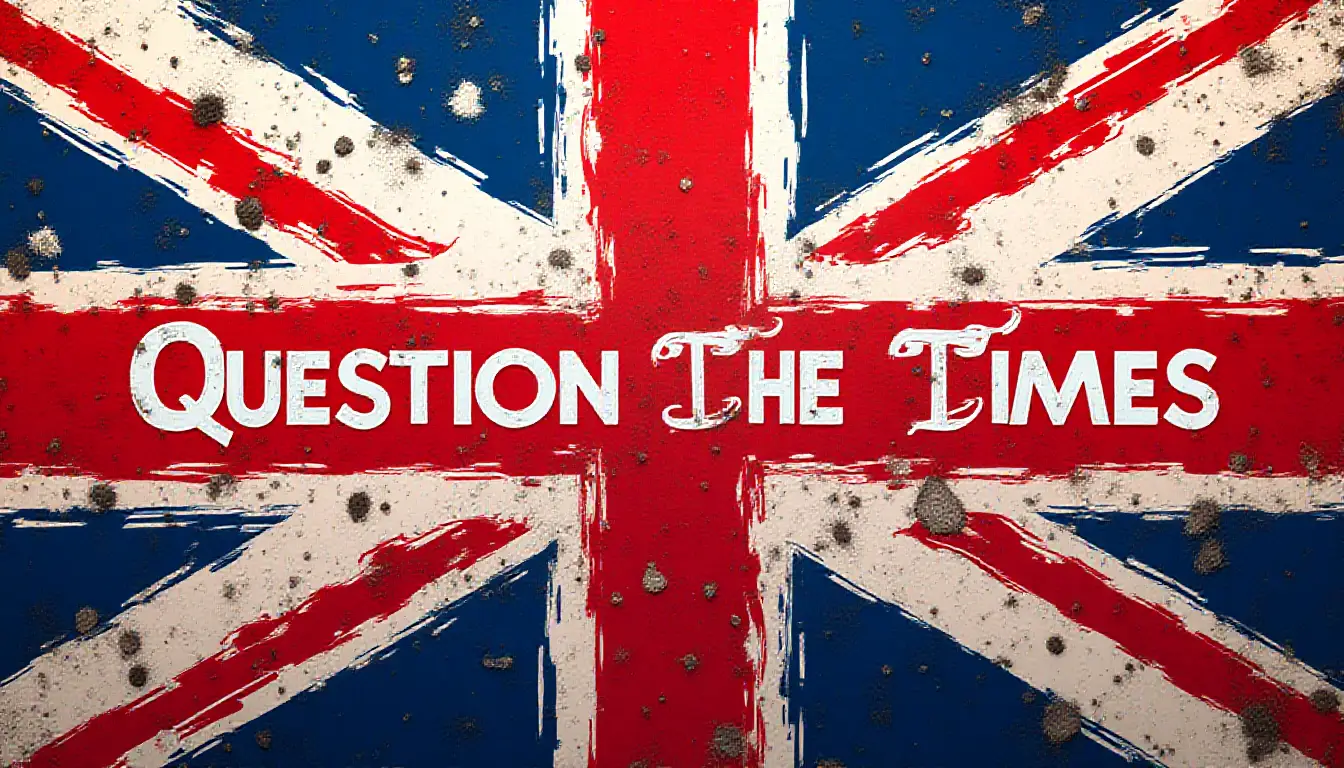
Why Ordinary Britons Are Told Not to Fly Their Own Flag
A Sunday Feature on Patriotism, Politics, and Two-Tier Justice
By [Staff Writer]
Across Britain today, something as simple as flying the Union Jack or St George’s Cross risks courting suspicion. Why? Because national symbols have become entangled in political identity, cultural divide, and what critics call two-tier justice.
1. Bans and Warnings: Real-Life Incidents
i) St George’s Cross Banned at School in Luton (2010)
At Icknield School in Luton, children celebrating St George’s Day by wearing Cross of St George badges or painting the flag on their hands were sent home. One child even faced potential suspension before being allowed to return, while the school reportedly apologized to another pupil who stood her ground after being threatened with exclusion 1066engdems.blogspot.com.
ii) England Flags Removed from Polling Station (2016)
During the EU Referendum on 23 June 2016, St George’s Cross flags were removed from a polling station at Mayfield Cricket Club in Palmers Green. Enfield Council acted after voters likened the display to an “EDL rally” and concerns that the flags might influence the Brexit vote. The Electoral Commission advised removal to avoid perceived bias The Standardlocalgov.co.uk.
iii) Labour’s Shadow Sports Minister on Flag Taint (2018)
In July 2018, Labour’s shadow sports minister, Rosena Allin-Khan, suggested that the St George’s Cross had become tainted by far-right connotations. She noted that fewer flags were visible, even during the World Cup, possibly because people feared they’d be associated with extremist ideology Telegraph.
2. The Broader Landscape of Inconsistency
i) Flags of Other Movements Fly Freely
In contrast, other symbolic flags face little challenge:
Question the times have your say
Voice your opinion? Have you experienced a reaction when waving the flag? Change only comes to those whom voice their opinions.
